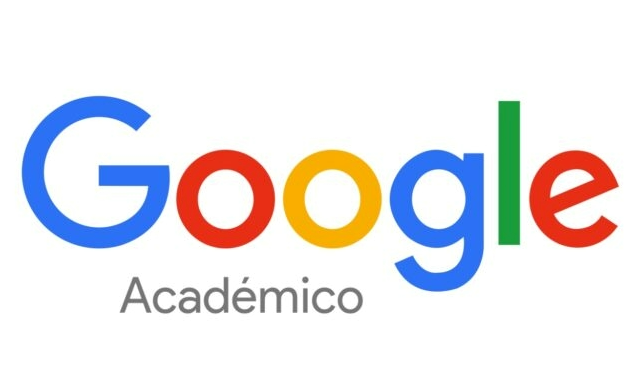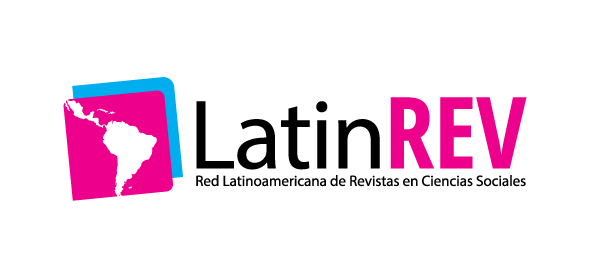EFECTOS DE LAS ESTRATEGIAS DE ENSEÑANZA EN LA GENERACIÓN DE APRENDIZAJES SIGNIFICATIVOS
DOI:
https://doi.org/10.70833/rseisa3item16Keywords:
Strategies of teaching, Generation of significative learning, Focus of teaching, Institucional conditions, Teacher s attitudeAbstract
The aim of the presten Studio consists in analize the effects of the teaching strategies and the relation between its implementation with the generation of significative learning in the students of Ciencias de la Educación Sciencie of Education career from Facultad de Humanidades y Ciencias de la Educación. Through application of questionnaire members of ruling body, teachers and students, like this the analysis of documents and the observation of classes, planned in an investigation of descriptive correlational type. The universe was adjusted for members of ruling body, technical personne, teachers and students. The pattern stay conformed by and academician, a technician, twenty two teachers and twenty five students. It could check and accept the formulated hypothesis, relationed to the academician focus that use the most of teachers at school, like this the comprobation of application of active an innovate strategies thak make a significative learning, showing the leading rolel of students in classes expandend for some teachers. The positive actitude from teachers and the institucional conditions, make the application of active strategies, almost the last aren’t determinant. Those results suggest the intervention in the kind of focus of teaching utilized by teacher for the classes, if reably wants to concrete the University Reform, so the pedagogical practice of them depend the expected change.
Downloads
References
ANECA (2004). La adecuación de las titulaciones de maestro al EEES. http:// www.ua.es/centros/educación/Borrador del Informe final.pdf.
CANO, Elena. (2005). Cómo mejorar las competencias de los docentes. Guía para la autoevaluación y el desarrollo de las competencias del profesorado. Barcelona. Graó.
CONEC( 2006). Consejo Nacional de Educación y Cultura.
COLL César y otros. (2002). El constructivismo en el aula. Editorial Grao. España.
DíAZ BARRIGA ARCEO, Frida. Hernández Rojas, Gerardo. (2001) Docente del Siglo XXI. Estrategias
Docentes para un aprendizaje significativo. Edic especial para la colección Docente de siglo XXI, por McGraw-Hill Interamericana, S.A. NOMOS S.A. Colombia.
DíAZ BARRIGA, Frida.(2001) Estrategias Docentes para un aprendizaje significativo. Frida Díaz Barriga Arceo. Gerardo Hernández Rojas. Edic especial para la colección Docente de siglo XXI, por McGraw-Hill Interamericana, S.A. NOMOS S.A. Colombia.
FARJAT, Liliana(1998). Gestión Educativa Institucional.Lugar Editorial. Buenos Aires.FARJAT, Liliana.(2004) Gestión Educativa Institucional. De las intenciones a las concreciones. Aportes para transformar la realidad. Lugar Editorial. S.A. Buenos Aires.
FERNáNDEZ, Evaristo Martin (2001.) Gestión de Instituciones Educativas Inteligentes. Un manual para gestionar cualquier tipo de organización. Mc. Graw.Hill Interamericana de España, S.A. México.
FERREIRO GRAVIé, R, (2004). Estrategias didácticas del aprendizaje cooperativo. El constructivismo social:una nueva forma de enseñar y aprender. México. Trillas.
FRABBONI, F (1998). La formación del profesorado en Italia. En Rodríguez Marcos E y otros. La formación de los maestros en los países de la Unión Europea. Madrid. Narcea.
GONZALEZ.E. Luis (2005) “El impacto del proceso de evaluación y acreditación en las universidades de América Latina”. CINDA-IESALC/UNESCO. Boletín IESALC abril 2005.
HERNáNDEZ SAMPIERI, (2007). Metodología de la Investigación Científica. LEPELEy, María Teresa, (2007). Gestión y Calidad en Educación. Un Modelo de Evaluación. Mc Graw Hill Interamericana. México.
LEY 2072/03 del Modelo Nacional de Acreditación de la Educación Superior. 2007.
MOSCHEN, Juan Carlos (2005) Innovación Educativa. Decisión y búsqueda permanente. Bonum. Buenos Aires.
ORTIZ DE MASCHWITZ, Elena (2005) Inteligencias Múltiples. PERRENOUD, P (2004) Diez nuevas competencias para enseñar. Barcelona Graó.
PERRENOUD, P. (2001). La formación de los docentes en el siglo XXI. Revista de Tecnología Educativa, XIV, 3.
POZNER DE WEINBERG, Pilar. (1995). El directivo como gestor de aprendizajes escolares. Editorial. Aique. Argentina.
POZO, I.(1989) Teorías cognitivas del aprendizaje. Ed. Morata. Madrid, p. 212.
SANJURJO, Liliana. Vera María Teresita. (2001). Aprendizaje significativo y enseñanza en los niveles medio y superior. Córdoba. Argentina.
SCRIVEN, M (1998) Ruties-based teacher evaluation. Journal o Personnel Evaluation in Education.
SENLLE, Andrés, Gutiérrez Nilda, (2005). Calidad en los servicios educativos. Ediciones Díaz de Santos.
SEVILLANO GARCíA, María Luisa.(2005) Estrategias innovadoras para una Enseñanza de Calidad. Pearson Educación. S. A. Madrid.
TAMAYO y TAMAYO, Mario.(1998) El Proceso de la Investigación Científica. Editorial LIMUSA. Noriega Editores. Impreso en México. pp. 231.
URIA, Ma Esther. (2001) Estrategias didáctico-organizativas para mejorar los centros educativos. Nancea. S. A. de Ediciones.
ZABALZA, Miguel A. (2007) Competencias docentes del profesorado universitario. Calidad y desarrollo profesional. NARCEA. S.A. Ediciones.
Downloads
Published
How to Cite
License
Creative Commons Attribution License CC-BY
You are free to:
Share — copy and redistribute the material in any medium or format.
Adapt — remix, transform, and build upon the material for any purpose, including commercially.
Under the following terms:
Attribution — You must give appropriate credit, provide a link to the license, and indicate if any changes have been made. You may do so in any reasonable way, but not in any way that suggests that you or your use is endorsed by the Licensor.







